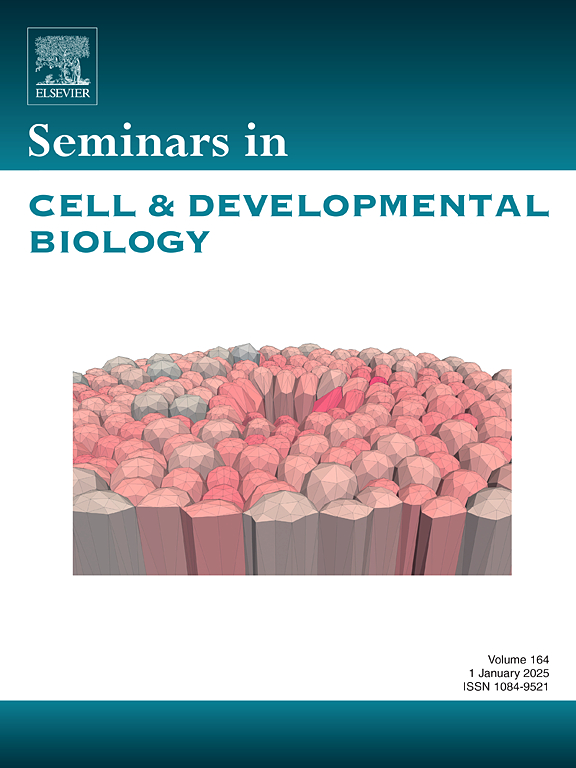空间组学揭示了胶质母细胞瘤的肿瘤组织。
IF 6
2区 生物学
Q1 CELL BIOLOGY
引用次数: 0
摘要
胶质母细胞瘤肿瘤微环境的特点是巨大的异质性,恶性和非恶性细胞在一个复杂的生态系统中相互作用。新出现的证据表明,肿瘤微环境是促进癌细胞快速增殖、侵袭、迁移和存活的关键,对治疗耐药性至关重要。空间组学技术使区域或单个细胞在其空间背景下的分子特征成为可能,为胶质母细胞瘤肿瘤微环境的复杂组织提供了以前无法实现的见解。了解这种组织对于开发指导患者护理的新疗法和新诊断工具至关重要。这篇综述探讨了空间组学技术,以及它们如何促进了胶质母细胞瘤肿瘤微环境结构模型的发展。本文章由计算机程序翻译,如有差异,请以英文原文为准。
Spatial omics shed light on the tumour organisation of glioblastoma
The glioblastoma tumour microenvironment is characterised by immense heterogeneity, with malignant and non-malignant cells that interact in a complex ecosystem. Emerging evidence suggests that the tumour microenvironment is key in facilitating rapid proliferation, invasion, migration and cancer cell survival, crucial for treatment resistance. Spatial omics technologies have enabled the molecular characterisation of regions or individual cells within their spatial context, providing previously unattainable insights into the complex organisation of the glioblastoma tumour microenvironment. Understanding this organisation is crucial for the development of new therapeutics and novel diagnostic tools that guide patient care. This review explores spatial omics technologies and how they have contributed to the development of a model outlining the architecture of the glioblastoma tumour microenvironment.
求助全文
通过发布文献求助,成功后即可免费获取论文全文。
去求助
来源期刊
CiteScore
15.10
自引率
1.40%
发文量
310
审稿时长
9.1 weeks
期刊介绍:
Seminars in Cell and Developmental Biology is a review journal dedicated to keeping scientists informed of developments in the field of molecular cell and developmental biology, on a topic by topic basis. Each issue is thematic in approach, devoted to an important topic of interest to cell and developmental biologists, focusing on the latest advances and their specific implications.
The aim of each issue is to provide a coordinated, readable, and lively review of a selected area, published rapidly to ensure currency.

 求助内容:
求助内容: 应助结果提醒方式:
应助结果提醒方式:


